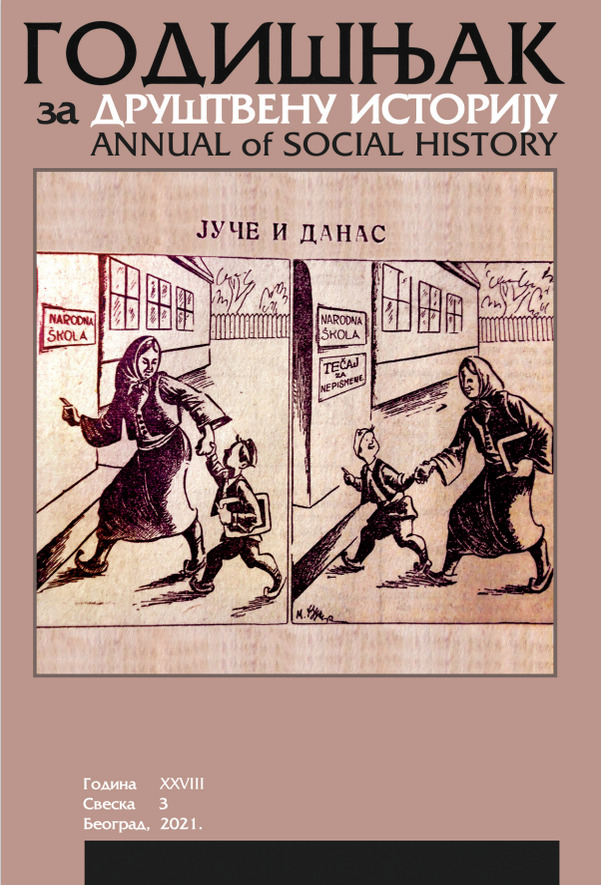U potrazi za pomilovanjem: odjeci dela Desanke Maksimović u češkoj i slovačkoj sredini
In search of absolution: Reflections of Desanka Maksimović’s work in Czech and Slovak social contexts
Author(s): Mladen SoviljSubject(s): Recent History (1900 till today), Serbian Literature, Sociology of Literature
Published by: Udruženje za društvenu istoriju
Keywords: Desanka Maksimović; poems; reflections of the work; Czechoslovakia; Yugoslavia; 20th century
Summary/Abstract: A large number of papers have been written on the famous Yugoslav and Serbian poetess Desanka Maksimović (1898–1993), mostly in literary and scholarly form, and they were mainly published in Serbia. However, her rich creative opus and published poems were not related exclusively to Serbian literature, that is, during a larger period 20th century for the Yugoslav cultural context. They had already won over audiences in other countries, primarily through translations into other languages. This also referred to the Czech and Slovak milieu. Czech and Slovak audiences could read some of her first verses translated into Czech as early as 1926. Maksimović even stayed in contact with some of the translators, as evidenced today by the preserved correspondence in one Czech archive. Although it would be very difficult to find a connection between the translated and published poems by Maksimović and the political situation in Czechoslovakia at the time, some of them just seemed to have appeared during very difficult times for the Czechoslovak state and society. Maksimović has often been connected with the participation of the Yugoslav delegation at the international congress of Penn clubs in Prague at the end of June 1938, at the time when the so-called Sudeten Crisis had already become a current problem in Czechoslovakia, so a presence of a foreign representative (regardless of their capacity) could have been as a sign of support for the then Czechoslovak leadership with regard to Nazi Germany. Maksimović’s poems were also being translated after the Second World War, not only into Czech but also into Slovak. Some of her most famous poems from the collection I seek absolution were included in the collection of poems translated and published in the Slovak language – Láska a súcit (Love and Compassion) in 1968, precisely at the time when some of the major political and social changes were taking place in the Czechoslovak state and society, expressed through a series of rather liberal reforms, defined as the Prague Spring. The discussion which Maksimović held in her poems about „people at the crossroads ... between the East and the West“, about guilt, justice, as well as punishment and forgiveness, could have had an indirect connection with the situation in which Czechoslovak society, the new reformist party and the state leadership found themselves with regard to the Soviet Union. Based on the analysis of the translated poems by Maksimović into Czech and Slovak from 1926 until the end of the 20th century, with the help of the few archived documents, as well as the press and the relevant literature of the time, the here presented paper could offer a view on this famous poet’s work and its reflections in the Czech and Slovak social contexts.
Journal: Godišnjak za društvenu istoriju
- Issue Year: 2021
- Issue No: 3
- Page Range: 51-78
- Page Count: 28
- Language: Serbian

